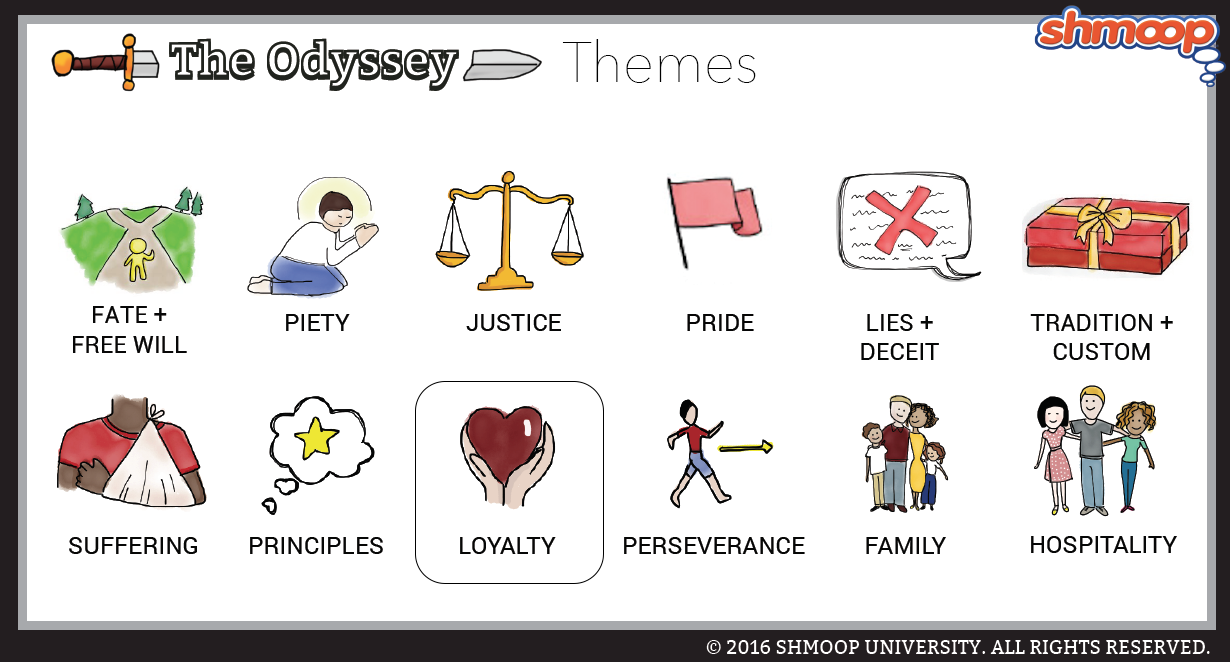 (Click the themes infographic to download.)
(Click the themes infographic to download.)
No one told him life was going to be this way—but if he has to spend ten years heading home from a decade-long war, at least Odysseus gets to do it with a boatful of loyal companions and a loving wife waiting for him at home. Loyalty is one of the Odyssey's most important virtues: the epic is full of examples of faithfulness (Penelope, Argos, Eumaios) and betrayal (Klytaimestra, Aphrodite, Melantho). Sure, Odysseus had those little incidents with Circe and Kalypos—but he didn't really mean it, since he never "in his heart" gave consent. So it totally doesn't count. Right?
Questions About Loyalty
- Is Odysseus justified in (or at least excused for) sleeping with Circe and Kalypso?
- Many of Odysseus' Ithakan friends and subjects think he's, yet he still considers them loyal to him. But when he's killing the suitors, he mentions that they didn't think he was coming back. Does loyalty mean something different if he's alive or dead?
- Is Odysseus' loyalty to his men similar in anyway to a wife's loyalty to her husband? Or are they totally different relationships?
Chew on This
In the Odyssey, loyalty is important—but it's not as important as honor and pride.
In the Odyssey, loyalty to family and friends comes before loyalty to the gods.